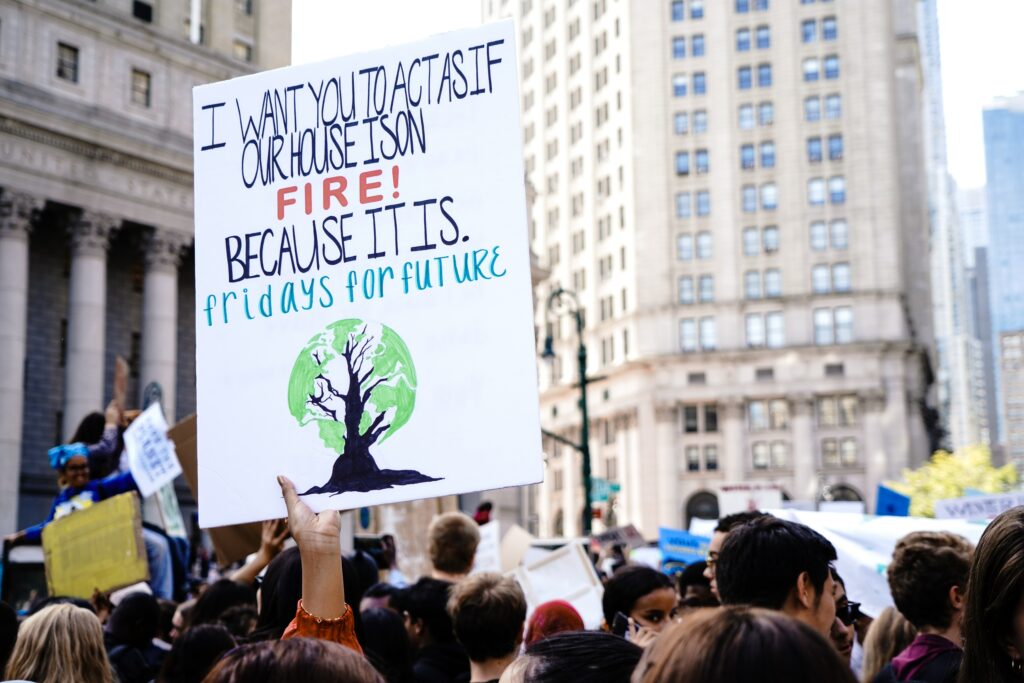Direct Lobbying involves individuals using their influence to communicate a desire for change in policy with a legislative body. When this attempt is made to influence legislation, it is often done through an official member of the lawmaking chambers. Someone with direct access to communicate with a Congressman or Senator is believed to have the capacity to participate in the formulation of legislation. When an individual or group can express their views of support or opposition to a piece of legislation, this is referred to as direct Lobbying.
Grassroots lobbying involves individuals gaining widespread support and influencing policy by changing public opinion. Legislation can be changed if the general public’s views support or oppose the policy. To consider the action lobbying, the support/opposition opinion must be based on a particular piece of legislation. Mass expressions of a view can force lawmakers to listen. In a democracy, the public elects their officials into office, meaning their opinions on a topic encourage the lawmakers to take action concerning that legislation.
Lobbying Advocates
Direct Lobbying Advocates
Lobbyists/Prominent citizens often carry the political connections and status required to lobby directly with lawmakers. These highly connected individuals often have personal relationships with several politicians and can influence policy directly by communicating with them. They achieve this through calls, emails, petitions & face to face meetings.
Grassroots Lobbying Advocates
The Constituents/Voters often have to band together to have their voices heard by the lawmakers. This method involves using public opinion to influence lawmakers. A large number of advocates means that they find strength in numbers. To get government officials to listen, these groups must often mobilize to submit petitions and engage in demonstrations/protests or strikes.

Organization of Lobbying
Direct Lobbying
Direct Lobbying can often be more private and subtle regarding its organizational structure. Some lobbying organizations are pretty influential in effecting or undermining democracy because they are made up of a small number of well-connected lobbyists. In this case, individuals often have the power to influence lawmakers directly. This power usually means they can operate individually without disclosing their efforts to the public. An example is a recently retired politician will still have contacts in government that he can speak directly to on policy issues. This individual may share their thoughts with the lawmaker and help affect policy in this manner.
Grassroots lobbying
This action often shapes nonprofit organizations, companies and trade unions. These groups influence policy, similar to how advocacy groups, interest groups, and grassroots lobbyists establish their structures. Grassroots lobbyists are often well connected with people in society. This factor helps them to specialize in mobilizing large groups of individuals. This advocacy allows people to speak with one voice on a cause. They require a defined level of structure to execute their rallies and demonstrations. These events often require resources, and members of the group will contribute. To gain momentum, they will need to distribute pamphlets, buy ad space, make calls and send texts. These contributions often need to be managed transparently to promote accountability. This requirement means grassroots lobby groups are often more structured than direct lobbyists.
Who uses Direct Lobbying?
The individuals often employ direct Lobbying in society and have direct and personal relationships with those making policy decisions. This status is usually achieved through numerous methods. Ex-politicians, prominent academic professionals and successful business people often know the lawmakers personally. To protect their industries or personal economic interests, these individuals or groups can directly engage their associates in power to make changes to the policy. These individuals often do not need resources or numbers to achieve their goals. They rely on persuasion and proximity to leverage to gain influence.
Who uses Grassroots Lobbying?
Grassroots lobbying is often only achievable by groups that bring a significant public presence. Gathering the masses together is usually the only way these groups can participate in any form of direct Lobbying. As numerous members are often required for grassroots lobbying, these groups often champion a cause that affects a large section of society. Social welfare and labour unions often speak for all economically vulnerable employees when they stage sit-ins and protests. They carry influence because Lobbying is often not the only method they employ to change policy. Without contacting lawmakers, these groups can demonstrate popular support behind a particular issue. The news media in the area will often help carry the cause and make it public. This type of action can be more useful in comparison to direct Lobbying.

Benefits of Direct Lobbying
- Prominent business people can offer suggestions to help make the business climate more conducive. A better business environment can promote employment and economic growth.
- It helps to resolve problems being faced by the sector or community quickly.
- Requires fewer resources.
- Relatively few limitations.
Benefits of Grassroots Lobbying
- Help the public become aware of an issue a part of society faces. As awareness increases, public support grows.
- Provide a platform for affected individuals and experts to offer solutions that lawmakers can enact.
- It helps voters/citizens to become politically active and exercise their democratic rights to free speech and freedom to associate.
- Provide a voice to the marginalized groups in society.
Levels of Lobbying
Local
Local Lobbying often happens to influence practical issues affecting the community. A key example is the development of an area or establishment of a business. These are usually not issues of policy.
State
Lobbying the state means petitioning positions of authority within a state legislature. The groups target senior officials such as the Speaker of the House and President of the Senate.







































